Incentivizing COVID Vaccination
Israel is taking an aggressive approach to inoculation.
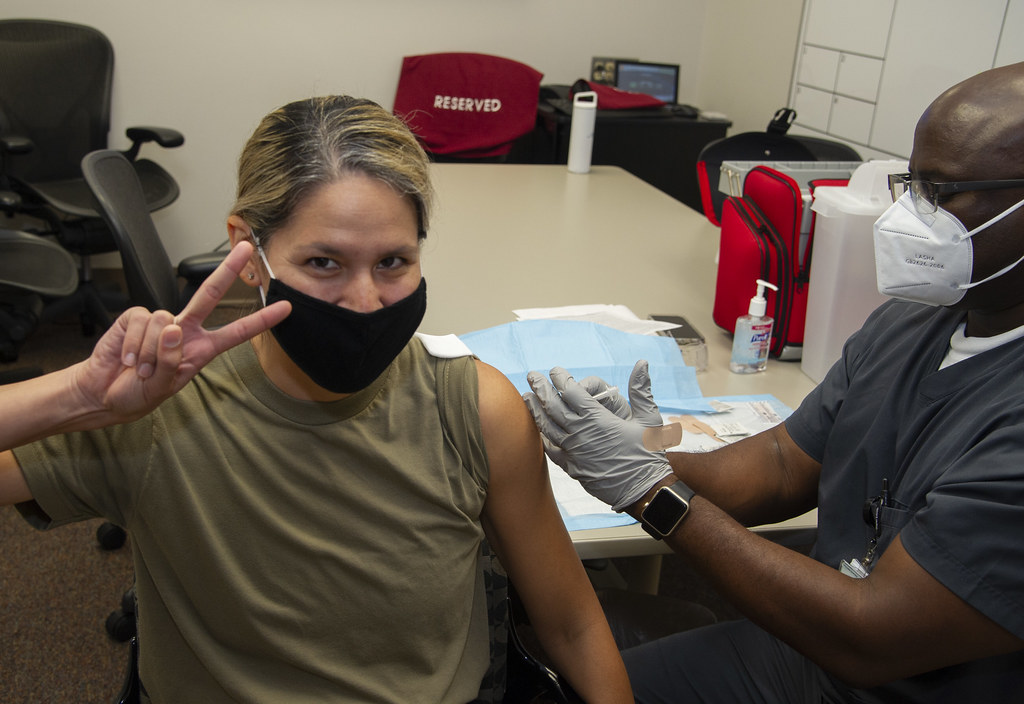
A few days ago, I wondered, “Is CDC Being Too Cautious?” by underplaying the degree to those who get fully vaccinated against COVID-19 could return to a normal existence. While I fully understand that the vaccine is to some degree still experimental and that there are risks associated with the known unknowns, there is also risk in vulnerable populations deciding there’s no point in getting vaccinated.
Since then, CDC has issued new guidelines that, while maybe not going as far as I’d like, are far bolder than those being floated when I wrote the post. Notably, they are giving fully vaccinated (i.e., one dose of Johnson & Johnson’s or both doses of Moderna’s or Pfizer’s plus two weeks) grandparents permission to socialize with their unvaccinated children and grandchildren. While perhaps risky, I think that’s the right course as it will almost certainly motivate older folks who are among the most vulnerable to the disease to get vaccinated.
Dropping my kids off for their first day of in-person classes in over a year this morning, I listened to part of the Daily’s “Life After the Vaccine in Israel” episode. They have been aggressive in the extreme, having started vaccinating their population in mid-December and have already fully inoculated nearly half their citizens. Aside from bold leadership from Prime Minister Netanyahu, who got his shots on live television along with his health minister on December 19th, they’re taking an incredibly proactive approach to reach out to people to schedule appointments. But, perhaps more importantly, there’s a huge carrot: the Green Pass.
Well, so the idea is that as the economy reopens, in order to keep the environment safe, certain places are only going to be open now to people that have the green pass. And this includes gyms, swimming pools, cultural events. So theaters that have begun to reopen, wedding halls and concerts, of course. So when you phone to book at a restaurant now, they ask you, do you have a green passport? Are you vaccinated?
[…]
The way the health minister put it in his kind of carrot-and-stick campaign for people to get vaccinated and get the green pass, he basically said, if you don’t have it, you’re just going to be left behind.
As we’ve been this test case all along, we’re now becoming a test case for what life is like with the green passport. And in fact, we’re beginning to see legal and other problems rising up that people really hadn’t planned for.
Obviously, this raises some equity issues:
Well, as if this society is already divided enough, we now have this new divide of the vaccinated and the unvaccinated. So it’s like this new two-tier class system. And this is raising a lot of legal and moral issues. If we take a look at some of the legal issues, to begin with, getting vaccinated is voluntary. And there are some people who, for whatever reason, have decided, at this stage, not to get vaccinated.
But then it raises all these questions, can their employers say, well, you can’t come into the office then? You get legal issues like the health ministry wanting to pass lists of unvaccinated people to the local authorities, they say, just so that the authorities can then chase them up and try and persuade them, or at least know, for example, which of the teaching staff are not vaccinated when they start going back to in-person schooling, which is happening now. And that’s already gone to the Supreme Court because citizens rights groups are saying this is an invasion of privacy. So all these things are really just playing out now in this big real-world experiment that we’re living in.
A voluntary program where failing to volunteer excludes one from eligibility for employment or participation in many facets of life is, arguably, not really voluntary but rather coercive. And that’s especially problematic given that the long-term risks of the vaccination are known unknowns. But considering that the catastrophic consequences of being unvaccinated against this deadly virus are known knowns, the risk-reward calculus isn’t really that hard. And the negative externalities of one person’s refusal to take the lesser risk are enough for me to be rather unsympathetic to their voluntary exclusion from normal life.

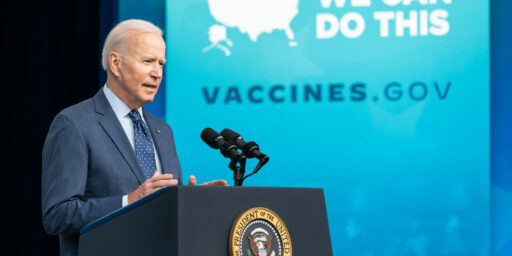
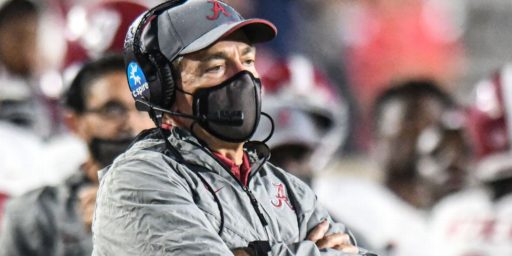
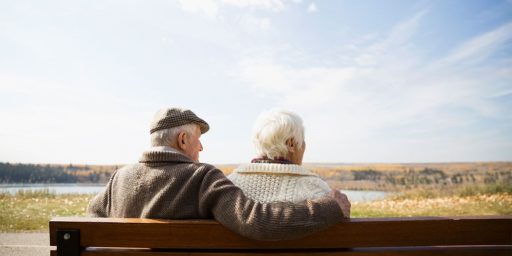
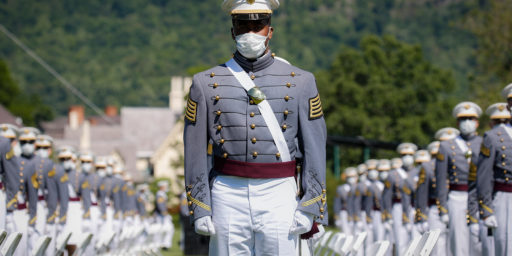
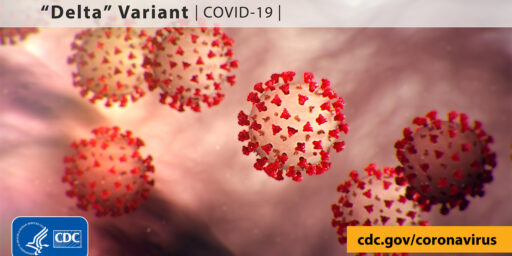
The key issue is: if your voluntary choices adversely affect the health of others around you, then your personal freedoms can be restricted. Smokers are allowed to smoke, but because of concerns over second-hand smoke damaging those around them, the former must participate in their chosen activity outside and/or away from everyone who don’t. If you choose not to get vaccinated, then you are much more likely to get infected and, even worse, become a potential carrier and spread to others, regardless whether they are vaccinated or not. Being vaccinated is no guarantee you won’t get infected, sick, or die.
That some sort of vaccine passport system will develop is pretty much inevitable, but government shouldn’t sponsor or encourage it.
In the US, employment requirements are set by the employer, limited only by a few specific laws and any union contracts. Employers and insurance companies have already realized that they maybe held libel for outbreaks in their facilities if they don’t have vaccination requirements. Airlines and cruise lines are already discussing how to implement. All but assuredly, international travel will require proof of vaccination.
@Sleeping Dog:
I’m more libertarian than the next guy but this seems exactly the sort of case where you’d want government involved to ensure uniformity and honesty. Otherwise, fake passports will abound and they’ll be useless.
@James Joyner:
The problem with government being the facilitator of such a system on the front end is that it will immediately be embroiled in the culture wars. Let some sort of haphazard, chaotic private system with vague standards develop and the logic of a national standard will (hopefully) prevail. Right now we’re in a let no good deed go unpunished world, government sponsorship, particularly federal gov, makes vaccine passports another battle line.
Society abounds with “voluntary” but coercive requirements. You don’t have to check those “Terms of Service” blocks. Or accept “arbitration” in purchasing contracts. But you really don’t have a choice. I’m not sure what the difference is between government and private corporations is except the power each wields.
But I do know that a passport system will be a bigger fight than masks.
Wow! Here where I live elementary kids have been 5 days a week since September and junior and high schools have been hybrid with the option of all-synchronous online for those who want that. There was a period where the district went all-online during the spike in December – mainly because of the effects of precautionary quarantines, not actual cases of Covid. Some of the smaller junior and high schools with specialized programs have been 4 days a week in person. Our district is going back to all full-time right after Spring break – again with the option that those who want remote learning can stick with that for the rest of the year.
Every school district is different and has different community needs and priorities, but it does surprise me that so many have had zero in-person, even for kids who really need it. I really appreciate that our district made accommodations for the many students who can’t do online learning.
@Andy:
We were supposed to be hybrid with 2 days in-person starting in September and then multiple times in between but the teachers’ unions are apparently more powerful than the governor and the school board.
I was telling a friend the other day that I sort of expect the local restaurant association — if they can get their staff vaccinated — to put together some sort of passport/certificate system and have a couple of full-capacity mask-free nights per week before long.
Vaccines do not have long term risks, as they don’t stay present in the body long term. They trigger an immune reaction and then get metabolized. After a couple of weeks the long term changes are all part of the natural immune system; none of the original vaccine is still there.
Anyone suggesting there’s a possibility of vaccine side effects showing up months or years later either doesn’t know what they talk about or is deliberately trying to mislead.
@James Joyner:
That sucks – I hope your kids fared well with all remote learning.
Even with hybrid, it was a disaster for my teen son despite the fact my wife and I both work from home – we had to move him over the winter break to another school in the district that had 4 days a week in-person and he’s doing a lot better. My youngest in elementary school would not have done well considering the experience from the spring shutdown, which was a terrible experience. My teen daughter, on the other hand, does really well with remote learning and opted out of hybrid to do all online for the rest of the year, and she’s doing well.
Every kid is different, public schools and especially teacher unions ought to be more flexible when it comes to meeting the needs of disadvantaged kids and kids who can’t effectively do remote learning – even in a pandemic.
@Andy: Can’t speak for other districts, but both of the districts in which I substitute teach have had provisions for in-person service for both disadvantaged students and students who needed special services even during the Spring 2020 shut down with no complaints from the teachers’ union. Of course, our state doesn’t run from a posture of believing that working with the teachers’ union is the paramount of evil or that teachers’ unions want to destroy education, either. But, different strokes for different folks, as the Honda commercial used to say.
‘
@Just nutha ignint cracker:
There is quite a range of experience for sure. It will be interesting to see the effects of all the various strategies. Hopefully, there will be lessons learned for how to do better in a future pandemic.
@Sleeping Dog:
When the poor minimum-wage folks who have to enforce said ad hoc system get hit, spit on, assaulted or even killed because their employer sent them out as meat shields demand police support, the gov will have to take a side and the Culture Warriors are going to start screaming anyways. Start arresting people for trespassing and assault may mean the state isn’t enforcing unpopular mask mandates but it will still be seen that way. See the TX woman from the open thread as example. Anything less than COVID denial is going to trigger them and have FOX segments on how outrageous it is to expect people to care about others getting sick.
Screw letting cowards in state government force businesses to be the bad guy and some teenager to be physically threatened by maskholes and anti-vaxxers. We need to stop catering to idiots and sacrificing our essential workers to assuage fee-fees. You have rights but one of them is NOT being a health hazard to everyone around you. You don’t have to vax but that means you’re having things delivered or picked up curbside for the foreseeable future. Order online, get used to Zoom meetings and no travel for you. That’s the consequences for your choice and you don’t have to like them for them to exist.
Some things that I wish we’d learn and incorporate into a post-pandemic world:
I know I’m hoping for a lot here.
If there had been such a thing as remote learning when I was in elementary school and high school, I’d have died of happiness.
@CSK: Me too. My teenager loves it, she doesn’t want to go back to public school next year. My middle schooler, not so much. There’s a very wide gap between their organizational levels, too, though.
@Stormy Dragon: It’s exhausting. While there’s much we don’t understand about viruses (see, for example, this) there’s plenty we know about how vaccines work. And yet there’s always some loon telling us to “do our homework,” which I’m guessing is watch a few YouTube videos.
I’m done caring about anti-vaxxers. My concern is for those who are unable to take vaccines due to true allergies who are relying on the rest of humanity to get their act together.
@Jen:
“Doing homework” or “doing research” very often involves an assiduous study of the latest drivel from The Gateway Pundit, Infowars, or The Conservative Tree House.
@Jen:
My inner surly curmudgeon is asking why we would believe that since the pandemic happened when we never believed it before, but I’ma try to distract him. (And yes, you’re asking for a lot, but I hope you get some of it.)
@CSK: I’ve never been particularly good at independent study, but I did get better at it after I had held a job. If I’d had remote education, I’d be living in a cave somewhere and have the social skills of a mushroom instead of a misanthrope. But I do agree that we need to have more options. If only options were free instead of needing to be paid for by society…
@Just nutha ignint cracker:
I hated school because I hate being told what to do by people stupider than I am, which by the time I got to be about ten I had figured out were most of the teachers and administrators in public schools–and I went to good public schools. College and grad school I quite liked, because the vast majority of the people around me in either place were smart. I was born for independent study.
@Just nutha ignint cracker: during the month when we were homeless, my high school daughter did in-person school. All the teachers have been in-person, teaching remotely from their classrooms. My daughter said that during her time in-person, about 20 students were in the building, all kids who were either homeless, in foster care, or who had special needs. There are federal laws, I believe, that schools are supposed to provide whatever accommodations are needed for kids in those situations. Not that they always do…
My kid has preferred remote learning, but said she liked getting to actually meet her teachers in person, and daily check-ins with her guidance counselor.